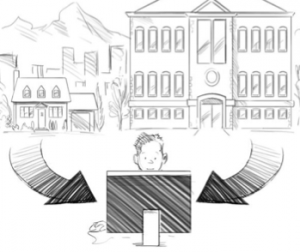Practising Research Skills
Designed into these learning stories:
Narrative
Teachers and librarians work with students in a digital literacy programme to develop a range of competencies which includes critical analysis, online safety, ownership and copyright, how to reference material and online safety. The scenario shows how traditional child-centred project work can be enhanced using digital resources whilst developing learners’ digital literacy competencies.
Silvie, Luca and friends work on an astronomy research project where they search online repositories and other resources from observatories, museums and libraries. They use online repositories that are recommended by their teacher or the librarian to ensure the quality of the research resources. The librarian presents these repositories and resources as an introduction to a digital literacy program which considers the reliability of materials alongside a comparison with resources the young people find for themselves. The teacher involves the students in designing a range of criteria through which young people can evaluate what they find online.
The teacher and librarian work closely with the young people to generate their own resources, criteria and understanding of digital literacy rather than imposing it top-down. In doing so, they act as facilitators, drawing on and valuing the knowledge that the learners already possess rather than leading each session as a traditional teacher might. In this, it draws on the established skills of the librarian who has traditionally been seen more as a supporter of learning rather than someone who explicitly directs learners towards particular outcomes. The online repositories and resources can be accessed by Sylvie, Luca and friends whilst at school, at home and in other public places so that they can focus on the astronomy project and share their knowledge with family and friends in these different settings.
In addition to the critical digital literacy skills that Sylvie and friends are developing, the teacher and the librarian encourage them to create a wiki (thus enhancing their creative online skills) through which they can share and collaborate on their project and developing digital literacy competencies. As a part of this, the learners comment on and evaluate each other’s wikis both in terms of the focus of the project and the quality of resources found by the students and the teacher or librarian and used for the project. They work together with the teacher to establish what the criteria are for commenting on and evaluating each group’s work including the digital literacy evaluation criteria (including reliability, quality, referencing, categorisation of information) they drew up in the earlier part of the programme. The teacher helps them to link the evaluation criteria to formal curriculum and assessment needs. This enhances their understanding of formal assessment measures. The peer- to-peer evaluation is included in the formal assessment of how the projects are carried out by Silvie and her classmates by the teacher.
This post is also available in: Turkish









